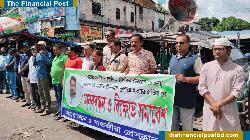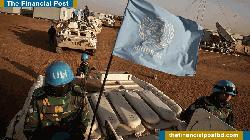Dhaka’s air quality deteriorated on Saturday morning, reaching a level categorized as unhealthy for sensitive groups, according to Air Quality Index (AQI).
At 9:43 AM, the capital recorded an AQI score of 141, placing it 13th among cities with the poorest air quality worldwide.
The top three most polluted cities at that time were Lahore (212) in Pakistan, Delhi (177) in India and Cairo (170) in Egypt.
An AQI reading between 101 and 150 is considered unhealthy for sensitive groups, meaning people with respiratory issues, children and the elderly may experience health effects and should limit prolonged outdoor activities.
AQI levels between 151 and 200 are considered unhealthy for everyone, while readings above 200 indicate increasingly severe health risks, with levels above 300 deemed hazardous.
Air Quality Index is a standardized system for reporting daily air quality and its potential health effects.
In Bangladesh, the AQI is calculated based on the concentration of five key pollutants: particulate matter (PM10 and PM2.5), nitrogen dioxide (NO₂), carbon monoxide (CO), sulfur dioxide (SO₂), and ozone (O₃).
Dhaka has long struggled with air pollution, particularly during the dry winter months, when dust and emissions increase. Air quality typically improves during the monsoon season, thanks to frequent rainfall.
According to World Health Organization (WHO), air pollution is a major global health risk, contributing to an estimated seven million deaths annually.
The primary causes include stroke, heart disease, lung cancer, chronic obstructive pulmonary disease, and acute respiratory infections.
FP/MI


 Human Chain in Satkhira Demands Justice for Journalist Hayat’s Murder
Human Chain in Satkhira Demands Justice for Journalist Hayat’s Murder
 BSF hands over 16 Bangladeshis to BGB at Satkhira border
BSF hands over 16 Bangladeshis to BGB at Satkhira border
 UN to cut 25% of peacekeepers worldwide; Bangladesh faces possible impact
UN to cut 25% of peacekeepers worldwide; Bangladesh faces possible impact
 Bangalee group calls hartal in Bandarban on 13 Oct
Bangalee group calls hartal in Bandarban on 13 Oct
 Syndicate accused of embezzling state funds under ACC scrutiny
Syndicate accused of embezzling state funds under ACC scrutiny